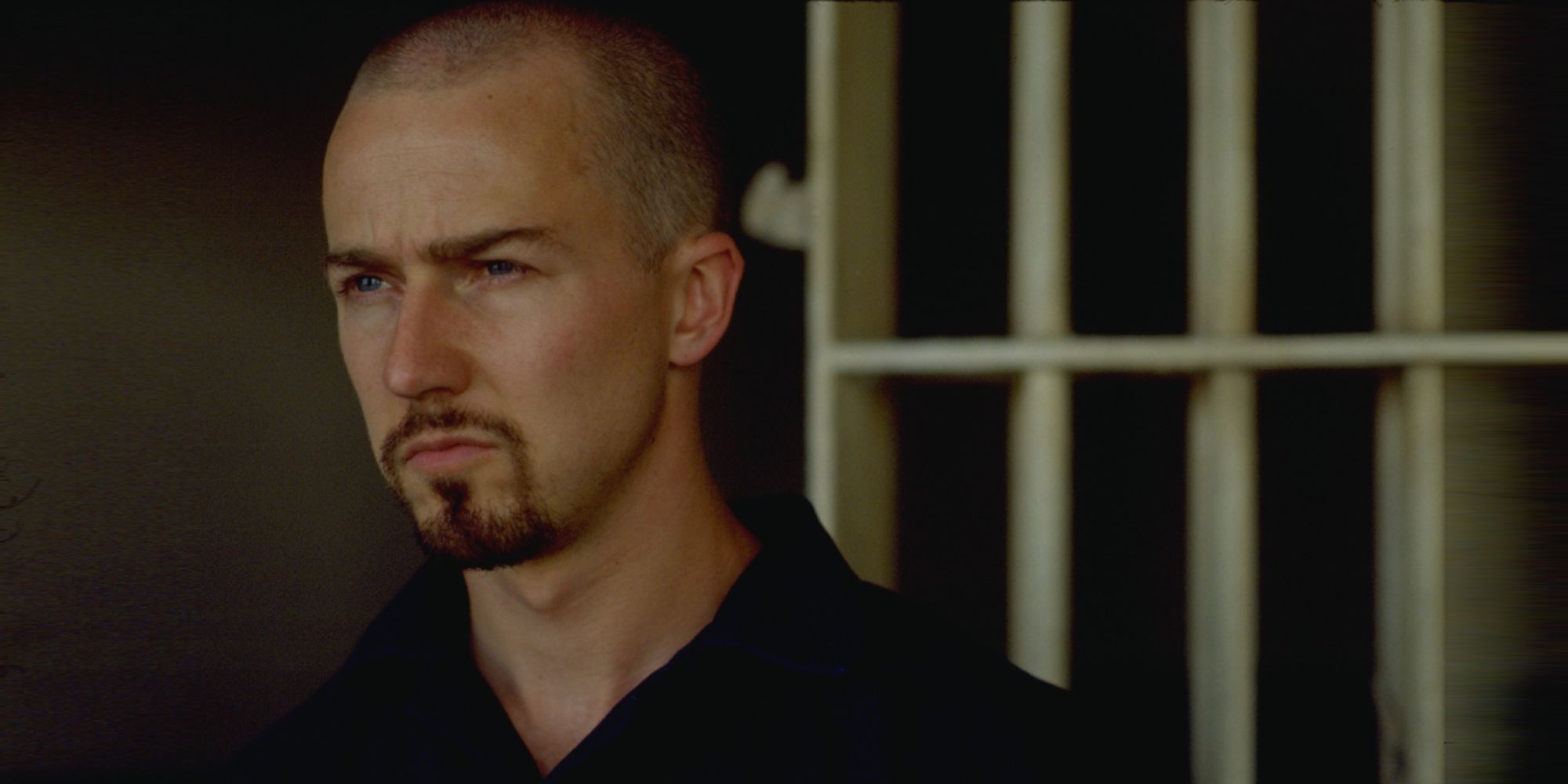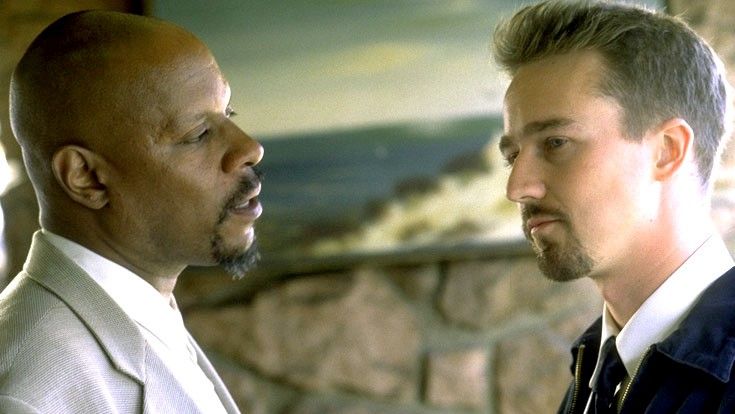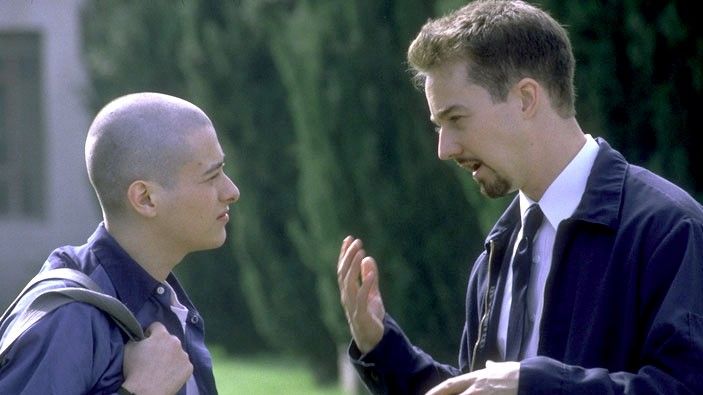When cinephiles dissect and examine on-screen performances, they will more often than not consider an actor’s range. This will usually relate to the star’s ability to effectively embody vastly different characters, each with their own personalities, mannerisms, beliefs, values, and ways of expressing themselves and communicating. In fact, many of today’s most celebrated names have continued to demonstrate this skill over and over again, from Hollywood icons such as Al Pacino and Meryl Streep to more recent talent like Jennifer Lawrence and Tom Hardy. However, one could argue that very few have stretched themselves as far and wide as Edward Norton. From his breakout role in Primal Fear (1996) to Fight Club (1999), Keeping the Faith (2000), The Illusionist (2006), The Incredible Hulk (2008), Moonrise Kingdom (2012), Birdman (2014), Motherless Brooklyn (2019) and beyond, time and time again the man has consistently proven himself as one of Tinseltown's most versatile artists. And yet, if there was one performance that best exemplifies Norton’s range it is arguably his turn as Derek Vinyard in Tony Kaye’s 1998 crime drama American History X. Earning critical praise upon release, the actor was nominated for an Academy Award for his portrayal of a neo-Nazi leader who gradually turns his back on his skinhead brethren. And it’s this ability to go from despicable thug to sympathetic hero that arguably makes this his greatest moment. In short, American History X is the quintessential Edward Norton film.
While American History X maintains a linear story where events unfold in chronological order, the film is split into two halves — the past that details Derek’s life before and during his prison sentence, and the present, where he is a free man and seeks to leave the neo-Nazi community. And because of this, Norton is therefore expected to play two very different characters who just so happen to occupy the same body. Consider Derek before his incarceration. He is, essentially, the worst of the worst and Norton plays it brilliantly. As the frontman of a group of frightened, confused, and impressionable white youths, Derek manages to convince them that all of their suffering is the result of immigration. In one key scene, he delivers an impassioned speech about how the country they live in is being stolen from them, immediately before he orders them to raid a once-white-owned grocery store now run by a Korean migrant. The following sequence is a truly uncomfortable watch, as the skinheads storm the store and violently beat its employees.
Arguably, it’s very easy to hate Derek in these moments. However, this version of the character is a far cry from the man he is in the present. After being freed from prison, he now sports a full head of hair and readily conceals the swastika tattooed on his chest. No longer does he believe in “white power,” but rather recognizes that his former prejudices have brought nothing but misery. During a gathering that his former comrades are holding, Derek physically attacks his old mentor Cameron (Stacy Keach) in an attempt to save his brother Danny (Edward Furlong) from falling under the spell of the same racist party that he once did. As an audience, we now have completely different feelings toward the character. His beliefs and values align with our own, and we are eager for him to succeed in taking his family as far away from their violent environment as possible. It’s nothing short of astonishing that we, as viewers, are now encouraged to identify with Derek. That’s not to say that such a reversal of character is something unique to this movie. On the contrary, there have been many instances in film and television where the protagonist has undergone similarly vast transformations. Consider Michael (Al Pacino) in The Godfather Trilogy (1972 – 1990) or Walter White (Bryan Cranston) in Breaking Bad (2008 – 2013). But in these cases, the characters were afforded considerably more time to change, Michael being granted three separate movies and Walter White five whole seasons. In American History X, however, Derek flips in a mere two hours and Norton executes this with immeasurable skill. Yes, the writing sets the foundation for this, but it’s Norton’s capabilities as an actor that make us believe that Derek is a changed man.
It’s also worth noting how Derek goes from racist gang member to rehabilitated. It’s not as simple as the character walking into prison feeling one way, and then walking out feeling another. Instead, his time behind bars serves as the transitional period where he learns the error of his ways. During his first months incarcerated, Derek holds on to his beliefs, still feeling that the needs of white America are of the utmost importance. But slowly he begins to see that the world cannot be seen in black and white. While paying attention to how fellow white supremacist Mitch (Alex Sol) strikes deals with Hispanic gang members, Derek also develops a friendship with Black inmate Lamont (Guy Torry) as they bond over basketball, women, and life on the outside. And it is here when Derek begins to learn that skin color is not the basis of any man.
However, the critical moment of the character’s journey comes when he is attacked by white inmates in the showers and is raped for integrating with the black and Hispanic prisoners. The character is reduced to a sobbing mess as he begs former high school teacher Sweeney (Avery Brooks) for help. This is arguably the moment where Derek really changes and, again, Norton’s talent is on full display. Portraying a victim of sexual assault is no easy feat, as it has to be delivered with the utmost vulnerability, respect, and authenticity. And as an audience, we have to refrain from thinking Derek got what he deserved, and instead pity him for what has just happened. Norton is successful in achieving the latter, and therefore makes his metamorphosis seamless rather than jarring. Again, the writing is there, but arguably it’s the actor’s delivery that really stirs our emotions. In another star’s hands, the moment he begs for Sweeney’s help could have come off as melodramatic or, at worst, false. But Norton plays the victim with tenderness and grace.
Let us, at this point, also consider the state of mind Derek is in during the past and then the present. While under Cameron’s influence, and even some time prior to this, the character is in a phase of mourning. Early in the film, we discover that his father was murdered by a Black man. As the grieving son, Derek is looking for somebody to blame for why his father was senselessly killed. In the present however, he adopts the fatherly role as he tries to protect his family, specifically Danny, from falling into a world of hate and violence. As the skinhead leader, Derek was consumed by the past and what had happened to his father. But once he left prison, the character had his eyes set on the future and building a new life somewhere far away from Cameron and his old friends. Again, Norton is outstanding as he goes from son to father figure in no time at all, therefore displaying his incredible range in the same film. Arguably, not many roles offer actors a chance to do this, but Norton seizes the opportunity with such excellence that we fully buy into the idea that Derek is one character made up of two halves.
In the closing moments of the film, Danny is unfortunately shot to death by a Black classmate (Jason Bose Smith) and we are left with the image of Derek holding his brother’s bloody corpse in his arms. What’s most haunting, however, is that we have no idea where this leaves the protagonist. Does he recognize this as a consequence of his past behaviors? Or will he return to his old ways in his grief? That we have no idea which direction the character will go is what makes the movie’s climax so powerful. Norton sitting on the floor cradling Danny’s lifeless body does more than just tug at our heartstrings.
And while Norton has given the world so many more amazing performances since, it’s this role in American History X that truly illustrates why he is one of Hollywood’s most exciting A-listers. With the ability to jump into the skin of a character and then shed that skin in so little time, Norton will no doubt one day reach legend status. But as he proceeds to expand his catalog of work, it’s always entertaining to return to American History X to witness the moment he went from good to extraordinary.




